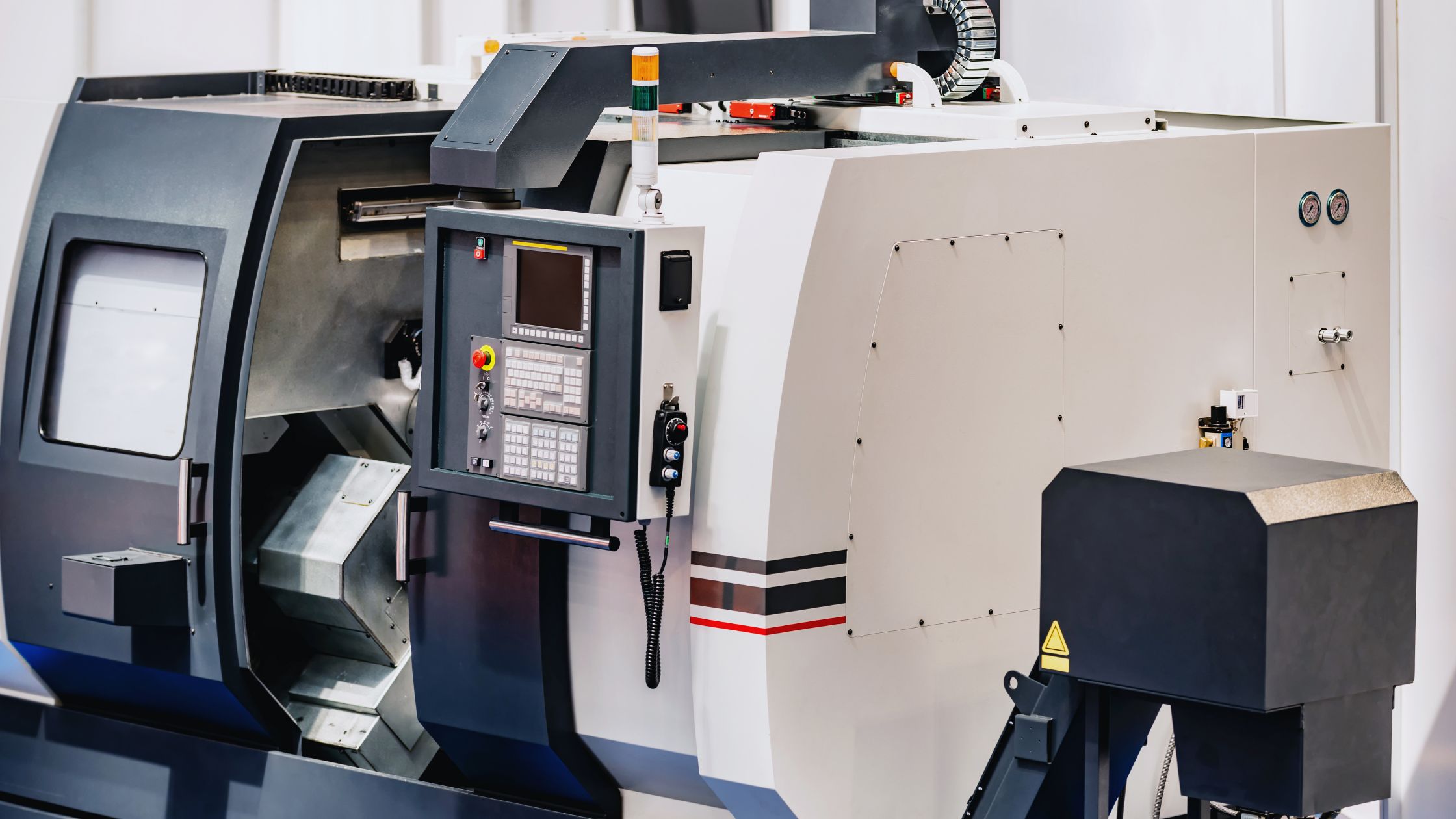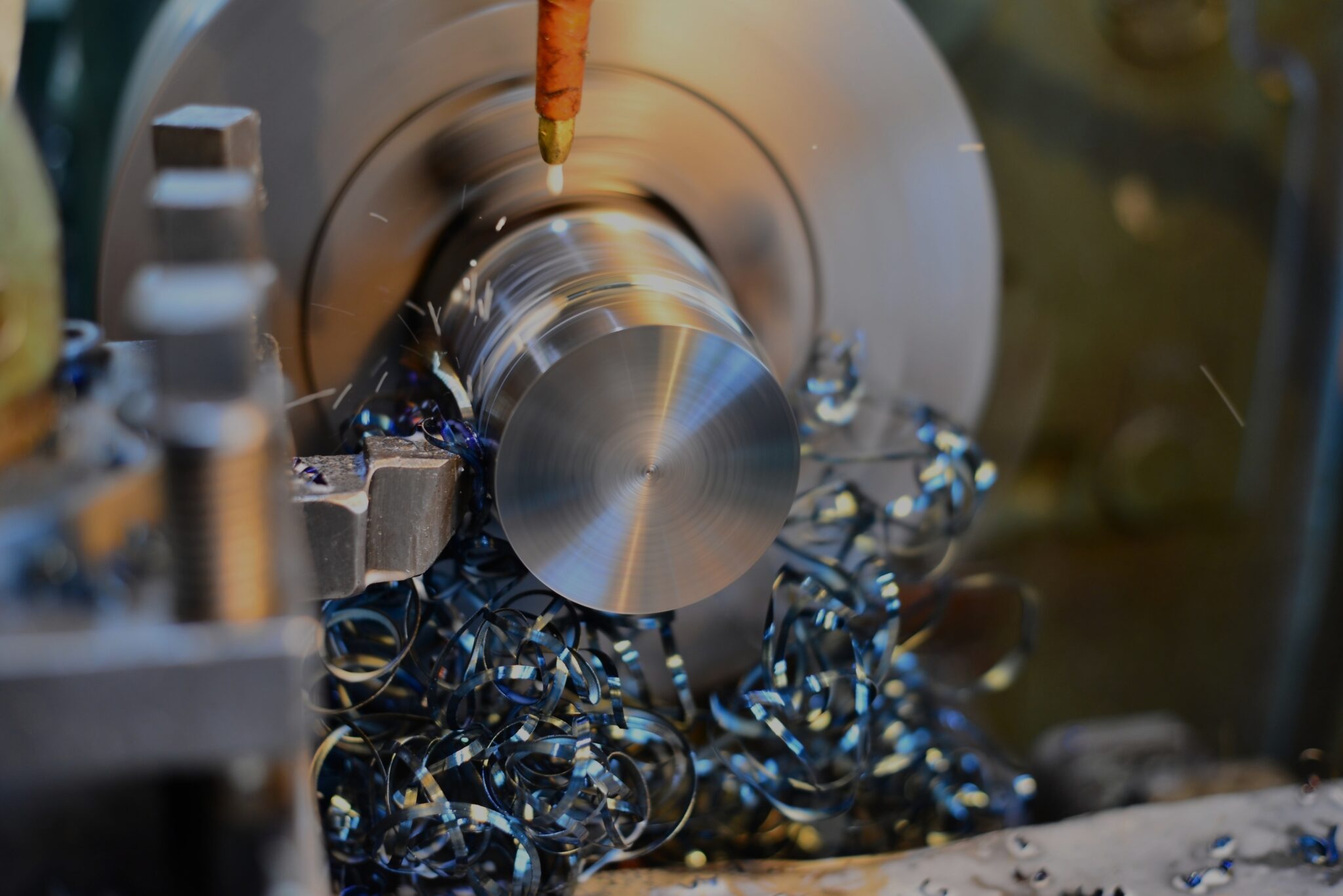5 major benefits of jig and fixture tooling for production lines
How CNC Machining Solutions Improve Effectiveness in Milling and Turning Procedures
CNC machining solutions play a pivotal function in improving efficiency within milling and turning processes. By making use of automation and exact control, these solutions lessen human mistake and assurance regular outcome. The capacity to manage complicated geometries and preserve tight resistances enhances production. However, the full extent of CNC technology's effect surpasses standard performance gains. There are deeper implications and future trends that require additional expedition.
The Essentials of CNC Machining
CNC machining is an accurate manufacturing procedure that uses computer-controlled devices to produce complex components and elements. This innovation uses computer-aided design (CAD) software to produce detailed models, which are after that equated right into maker instructions. The procedure commonly involves various operations such as milling, turning, and drilling, enabling makers to accomplish high levels of precision and repeatability.
CNC devices are equipped with sophisticated tooling that can manipulate products like wood, metal, and plastic. They run through a collection of commands that determine motions, speeds, and device modifications, reducing human error and improving production effectiveness.
The automation intrinsic in CNC machining allows for complex geometries and tight tolerances to be constantly created, making it a recommended option in industries requiring precision, such as aerospace and auto. Recognizing the principles of CNC machining is necessary for valuing its role in modern-day production processes.
Advantages of CNC Machining in Milling
CNC machining provides considerable advantages in milling processes, specifically relating to precision and accuracy. This technology not only boosts manufacturing speed however additionally permits the creation of complicated styles that would be testing to accomplish manually. As an outcome, organizations can improve efficiency and expand their capabilities in production.
Precision and Accuracy
Achieving unmatched precision and accuracy in milling procedures is a characteristic of innovative machining methods. CNC machining services make use of computer-controlled systems that diligently perform layouts with marginal human intervention. This automation guarantees that each cut and contour is performed to precise specifications, substantially lowering the risk of errors commonly connected with manual milling. The ability to generate detailed geometries with limited resistances is a crucial benefit, permitting manufacturers to meet rigid top quality requirements. Additionally, CNC machines can preserve constant performance across several runs, ensuring uniformity in production. This degree of accuracy not just boosts item high quality yet likewise reduces product waste, bring about more reliable use sources. On the whole, CNC machining solutions change milling procedures with their commitment to accuracy and information.
Boosted Production Rate
Increasing production rate is among the standout benefits of modern machining solutions. CNC machining substantially minimizes the time needed for grating procedures by automating operations and lessening hands-on intervention. Makers can operate continuously, permitting enhanced output without giving up quality. The capacity to program several jobs into a single setup further enhances manufacturing, enabling manufacturers to complete complex jobs in less time. Additionally, CNC machines preserve high-speed cutting capacities, leading to quicker material removal and faster cycle times. This enhanced performance translates to much shorter lead times, allowing companies to react swiftly to market demands. Overall, increased production rate via CNC machining not just enhances productivity yet additionally enhances affordable advantage in the production market.
Complex Design Capabilities
The capability to produce elaborate styles is a considerable advantage of contemporary machining solutions. CNC machining enables the production of complex geometries that would be difficult, otherwise impossible, to achieve making use of conventional approaches. This capability comes from innovative programming and automated tools that specifically adhere to digital plans, ensuring precision and repeatability. Therefore, suppliers can generate elaborate get rid of limited tolerances, maximizing performance in various applications. In addition, the flexibility of CNC devices enables fast adjustments to create specifications without considerable retooling, simplifying the production process. This versatility not only enhances creative thinking in design however additionally permits effective trial and error and innovation, providing businesses an one-upmanship in the ever-evolving market.

Advantages of CNC Turning Procedures
CNC transforming procedures supply considerable advantages in manufacturing, especially pertaining to accuracy and precision. These procedures permit the development of very outlined parts with minimal tolerances, making sure top quality in manufacturing. Additionally, the efficiency of CNC turning adds to lowered preparations, allowing faster delivery of completed products.
Precision and Accuracy
Precision and accuracy are trademark characteristics of CNC transforming processes, setting them apart in the manufacturing Continued landscape. These procedures utilize computer numerical control to direct reducing devices with unparalleled exactness. This leads to elements that fulfill rigorous specs and tolerances, reducing the likelihood of errors. CNC transforming permits regular and repeatable production, guaranteeing that each component is essentially identical, which is essential in sectors needing high requirements, such as aerospace and medical devices - jig and fixture tooling. On top of that, advanced software application and technology enable real-time modifications throughout machining, boosting overall top quality. By reducing human error and maximizing control over the manufacturing procedure, CNC transforming services provide superior accuracy and accuracy, making them an important option for modern production requirements
Decreased Lead Times
Lowered lead times are a significant benefit of CNC turning processes, coming from their capability to enhance and automate manufacturing. CNC transforming equipments operate with high effectiveness, enabling fast setup and execution of several tasks without the need for extensive manual treatment. This automation minimizes downtime and increases the production procedure, allowing quicker turnaround for orders. Additionally, CNC technology improves uniformity and minimizes errors, which additionally adds to much faster manufacturing cycles. Consequently, companies can fulfill limited deadlines and react promptly to market demands. By leveraging CNC transforming procedures, firms can improve process, improve source allowance, and eventually improve their affordable side through lowered preparations.
Precision and Accuracy in Production
While making procedures have evolved considerably over the years, the relevance of precision and precision remains vital. In CNC machining, these two elements are critical to creating top quality parts that meet precise specifications. The combination of innovative computer innovation permits meticulous control over machining parameters, making sure that components are crafted with minimal variance from intended styles.
Accuracy in making refers to the repeatability of processes, while precision represents exactly how closely a finished part straightens with its desired dimensions. CNC devices make use of sophisticated software and tools that allow manufacturers to accomplish both, visibly decreasing the margin for mistake - jig and fixture tooling. This capability is especially necessary in sectors such as aerospace, automotive, and medical, where even small inaccuracies can lead to catastrophic failures

Minimizing Lead Times With CNC Technology
CNC modern technology speeds up production timelines by simplifying the machining process. By automating jobs, CNC makers minimize hand-operated intervention, considerably decreasing the moment required for arrangement and operation. This performance allows manufacturers to react swiftly to market demands, meeting orders quicker than conventional machining techniques allow.
In addition, CNC innovation offers fast prototyping capabilities, permitting fast versions and changes based on client responses. The accuracy of CNC machining makes sure that parts are generated correctly the very first time, decreasing the probability of pricey errors and revamp.
Advanced organizing and programs abilities enhance process, enabling several operations to run concurrently. This combination of innovation not only shortens lead times however also boosts total efficiency. Inevitably, the fostering of CNC machining services gears up producers with the tools necessary to fulfill tight deadlines while maintaining top quality standards in production.
The Future of CNC Machining in Market
As producers increasingly adopt CNC modern technology to simplify processes and reduce preparations, the future of CNC machining in market appears promising. Technologies informative post such as fabricated intelligence and artificial intelligence are established to reinvent the capabilities of CNC machines, enhancing their accuracy and versatility. These advancements will certainly help with real-time monitoring and anticipating maintenance, decreasing downtime and enhancing production effectiveness.
The assimilation of Internet of Points (IoT) technologies will make it possible for better information collection and analysis, enabling suppliers to make educated choices that further boost functional efficiency. The increase of additive production alongside CNC machining is anticipated to enhance conventional approaches, providing greater style adaptability and material effectiveness.
In addition, as sustainability becomes a concern, CNC machining is progressing to integrate eco-friendly practices, which will attract environmentally conscious consumers. Overall, the future of CNC machining is defined by constant advancement and adjustment, placing it as link a foundation of contemporary manufacturing.
Frequently Asked Inquiries
What Products Are Suitable With CNC Machining Solutions?
CNC machining services work with various products, including metals like steel, titanium, and light weight aluminum, along with plastics such as acrylic and polycarbonate. Wood and compounds also suit CNC processes for varied applications.
How Does CNC Machining Compare to Traditional Machining Methods?
CNC machining provides higher automation, precision, and uniformity compared to conventional methods. It decreases human error, increases manufacturing rate, and permits for complicated styles, making it a remarkable option in contemporary manufacturing environments.
What Industries Advantage the A Lot Of From CNC Machining Solutions?
The aerospace, vehicle, medical, and electronics sectors profit significantly from CNC machining services. These sectors leverage precision, personalization, and speed to improve item high quality while lowering production prices and time, eventually boosting general operational performance.
Can CNC Machines Deal With Facility Geometries and Styles?
CNC machines are skilled at dealing with intricate geometries and styles, enabling precision and intricate outlining. Their advanced shows capacities enable manufacturers to create components with high accuracy, meeting varied market needs and enhancing item functionality.
What Is the Normal Cost Variety for CNC Machining Providers?
The common price range for CNC machining services differs extensively, typically dropping in between $50 to $150 per hour, depending upon variables such as material, complexity, volume, and the details machining processes utilized.
CNC machining is a specific manufacturing process that makes use of computer-controlled machines to create complex components and components. CNC machining provides substantial benefits in milling processes, particularly regarding precision and accuracy. CNC machining greatly decreases the time needed for crushing procedures by automating procedures and minimizing manual intervention. CNC innovation increases manufacturing timelines by streamlining the machining procedure. As manufacturers increasingly embrace CNC innovation to enhance procedures and minimize lead times, the future of CNC machining in sector shows up appealing.